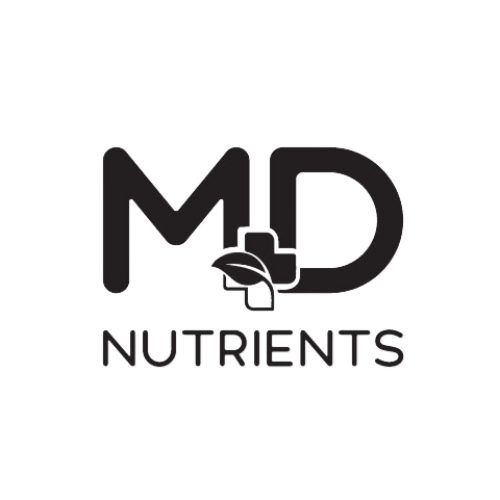Introduction: Why Calcium Is Important
Calcium is an essential mineral that plays a crucial role in supporting bone health throughout life. As the body’s most abundant mineral, about 99% of calcium is stored in the bones and teeth, providing structural strength. Adequate calcium intake is essential from childhood for building strong bones and remains critical into adulthood to maintain bone density and prevent bone loss. Knowing the best sources of calcium, whether through diet or supplements, can help you make choices that support lifelong bone health.
Benefits of Calcium for Bone Health
Calcium is key to various body functions, especially bone health:
-
Bone Formation and Maintenance
Calcium is essential for building and sustaining bone mass, especially during childhood, adolescence, and early adulthood when bone growth is at its peak. Maintaining sufficient calcium levels throughout adulthood can prevent bone loss, fractures, and conditions like osteoporosis. -
Muscle Function
Beyond bones, calcium is critical for muscle contraction. Proper muscle function supports skeletal strength and stability, aiding in mobility and reducing fall risk—an essential factor for older adults. -
Hormonal Regulation
Calcium plays a role in hormone and enzyme secretion, which is vital for bone remodeling and turnover processes, affecting how bones develop and renew over time. -
Prevention of Bone Diseases
Adequate calcium intake can reduce the risk of osteoporosis, osteopenia, and fractures. This mineral fortifies bone structure, especially during aging, when bones are more susceptible to degeneration. -
Support for Overall Health
Apart from bone health, calcium supports cardiovascular function, nerve signaling, and blood clotting, contributing to overall physical health and wellness.
Calcium Supplements vs. Dietary Sources
When evaluating calcium intake, it’s helpful to weigh the pros and cons of dietary sources and supplements:
-
Dietary Sources
Natural food sources are often preferable because they offer additional nutrients that enhance calcium’s effectiveness:- Dairy Products: Milk, cheese, and yogurt are well-known for their high calcium content and also provide protein and other essential vitamins.
- Leafy Greens: Vegetables like kale, broccoli, and collard greens contain calcium along with fiber, antioxidants, and other minerals.
- Fortified Foods: Certain cereals, plant-based milk, and orange juice are fortified with calcium, making them valuable for people with dietary restrictions.
- Fish: Canned fish with bones, such as sardines and salmon, provides a significant amount of calcium plus beneficial omega-3 fatty acids.
-
Calcium Supplements
Supplements can be beneficial in cases where dietary intake is insufficient:- Increased Needs: People with higher calcium needs, such as postmenopausal women or those with certain health conditions, may benefit from supplements to meet their daily requirements.
- Dietary Restrictions: Individuals following vegan diets or those with lactose intolerance may find it challenging to obtain sufficient calcium from food alone, making supplements a viable alternative.
- Bone Health Management: For those diagnosed with osteoporosis or low bone density, calcium supplements may be recommended as part of a treatment plan.
Choosing the Right Calcium Supplement
If you decide to take a calcium supplement, it’s important to choose the right type:
-
Types of Calcium
Calcium supplements come in various forms, each with different absorption rates:- Calcium Carbonate: Often cost-effective and best taken with food for maximum absorption.
- Calcium Citrate: More easily absorbed and can be taken on an empty stomach, making it a good choice for those with lower stomach acid, such as older adults.
-
Dosage
The recommended daily allowance (RDA) for calcium varies based on age and sex, so choose a dosage that fits your needs without exceeding the upper limit. -
Additional Ingredients
Many calcium supplements include vitamin D, which aids in calcium absorption and enhances its effectiveness for bone health. This is especially beneficial for people who have limited sun exposure. -
Quality and Purity
Opt for reputable brands with third-party testing for quality and purity to ensure a safe and effective product free from contaminants.
Signs of Calcium Deficiency
Recognizing calcium deficiency symptoms can help address bone health concerns early:
-
Muscle Cramps and Spasms
Muscle cramps, especially in the legs and back, may indicate low calcium levels. -
Brittle Nails
Calcium deficiency can lead to weak or brittle nails as the body may draw calcium from other areas to support vital functions. -
Tooth Decay
Low calcium levels can weaken teeth and increase the risk of cavities and dental issues. -
Osteoporosis Symptoms
Symptoms like frequent fractures, back pain, and height loss due to weakened bones can indicate osteoporosis. -
Numbness or Tingling
Calcium deficiency can lead to numbness or tingling in the fingers or around the mouth, affecting nerve and muscle function.
Conclusion: Strengthen Bones with Calcium
Calcium is a cornerstone of bone health, essential for building and maintaining strong bones. While dietary sources provide the best means of obtaining calcium, supplements can be a valuable aid for those with higher needs or dietary limitations. By understanding the importance of calcium, recognizing deficiency symptoms, and selecting the right sources—whether through food or supplements—you can take proactive steps to protect your bones and overall health. Ensuring adequate calcium intake is a vital part of promoting longevity and quality of life.


